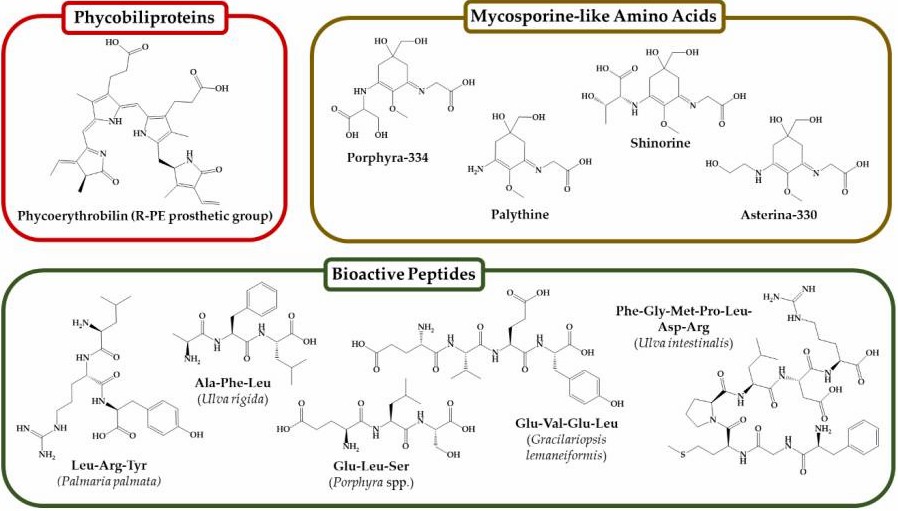Protein is the third most abundant primary metabolite found in macroalgae, after carbohydrates and minerals. In most cases, seaweeds are used in food products for their mineral content or their functional properties as polysaccharides. Seaweeds are rarely promoted for their nutritional value as proteins. Here, Lifeasible offers professional solutions for the identification of seaweed proteins.
Seaweeds are receiving increasing attention as a valuable food source. Seaweeds are an excellent source of various proteins (amino acids, peptides, phycobiliproteins, and lectins) with interesting biological properties such as anti-hypertensive, antioxidant, anti-diabetic, anti-inflammatory, anti-tumor, anti-viral and anti-bacterial. Seaweed proteins contain all amino acids, especially glycine, arginine, alanine, and glutamic acid. The levels of essential amino acids in seaweed are comparable to the FAO/WHO requirements for dietary protein. In addition, seaweed has been extensively studied for its peptides' health benefits. The commercialization of seaweed-derived bioactive peptides could interest the nutritional drug and pharmaceutical industries.
 Fig 1. Chemical structure of the chromophore group of R-phycoerythrin, some relevant mycosporine-like amino acids, and bioactive peptides isolated from seaweed protein hydrolysates. (Echave J, et al., 2022)
Fig 1. Chemical structure of the chromophore group of R-phycoerythrin, some relevant mycosporine-like amino acids, and bioactive peptides isolated from seaweed protein hydrolysates. (Echave J, et al., 2022)
Seaweeds are rich in up to 47% protein (close to the protein content of conventional protein sources) and contain bioactive compounds such as peptides, glycoproteins, lectins, mycosphaerin-like amino acids, and algal bile proteins. Our scientists try to use seaweed proteins or purified protein fractions for functional food development. Lifeasible offers a comprehensive service for identifying seaweed proteins by testing the protein content and quality of different seaweed.
The protein, peptide, and amino acid content of seaweeds vary by species, season, maturity, and environmental factors. Moreover, differently processed samples, protocols used for protein evaluation, and nitrogen-to-protein conversion factors affect the accuracy. We develop customized solutions to detect protein content in seaweeds from different sources, and the crude protein content of seaweeds is widely calculated from total nitrogen content (N×6.25).
We evaluated protein quality by considering amino acid composition, ratio, amino acid score, digestibility, and bioavailability. In addition, we used human and animal feeding studies (in vivo protein digestibility) for biological assessment to accurately predict the nutritional value of seaweed proteins.
Seaweed-derived proteins, peptides, and amino acids have multiple health benefits. We offer the following services:
At Lifeasible, our service for identifying seaweed proteins provides a comprehensive analysis of seaweed proteins and protein-derived molecules for their characteristics, bioactive properties, and potential roles. We are your trusted partner in all aspects of seaweed research. If you are interested in our solutions, please do not hesitate to contact us.
Reference
Lifeasible has established a one-stop service platform for plants. In addition to obtaining customized solutions for plant genetic engineering, customers can also conduct follow-up analysis and research on plants through our analysis platform. The analytical services we provide include but are not limited to the following:
Get Latest Lifeasible News and Updates Directly to Your Inbox
Adaptive Evolutionary Mechanism of Plants
February 28, 2025
Unraveling Cotton Development: Insights from Multi-Omics Studies
February 27, 2025